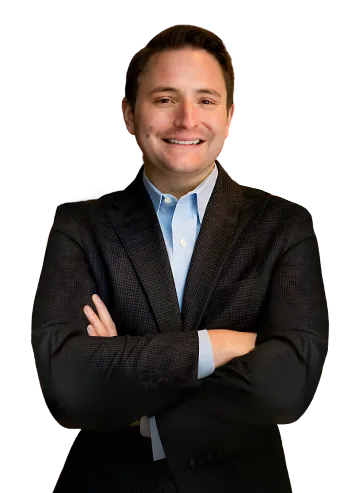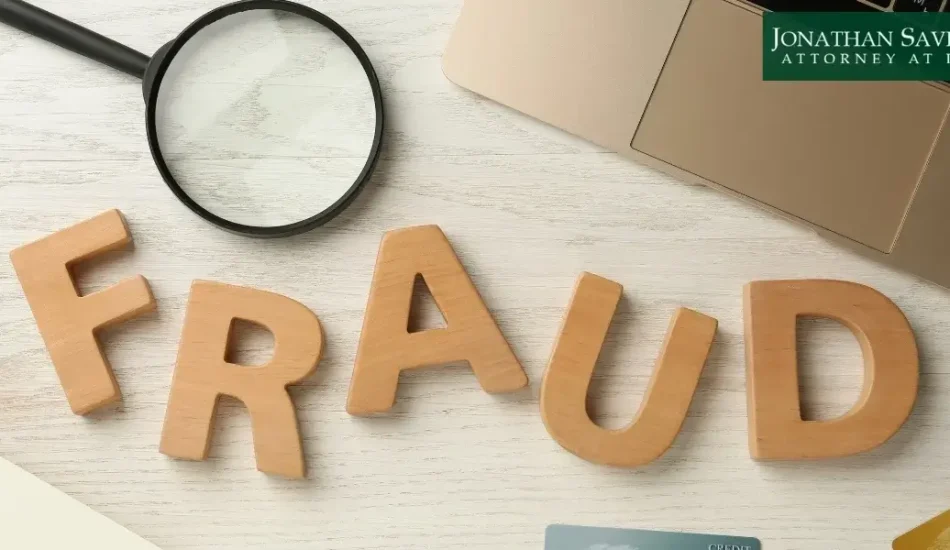|
|
Last Modified on Apr 16, 2025
Federal fraud continues to come with challenges in New York City. As technological advances continue to be a part of our world, so do the tactics of those who intend to defraud. This makes it important for those in NYC to stay informed so they know the steps to take to prevent federal fraud in NYC.
The Current State of Federal Fraud
In recent years, federal fraud has become more complex and has impacted more people. In 2024, consumers reported losing over $12.5 billion to fraud, which showed an increase from years prior. Additionally, the federal government loses an estimated $233 billion to $521 billion each year to fraud.
The advancement of technology and AI tools has led to an increase in identity theft, and AI-generated pump fakes have made it easier for fraudsters to impersonate others and access their financial information. These technologies also allow them to automate scams for greater efficiency.
Common Types of Federal Fraud in NYC
There are several different types of federal fraud. Understanding these types helps people recognize them and can help aid in prevention. Some common types of federal fraud include:
- Healthcare fraud. Healthcare fraud is when healthcare providers purposely and intentionally engage in unlawful activity to receive compensation. Actions in this category include fraudulent billing, receiving kickbacks, and performing unnecessary services to get paid for the service.
- Tax fraud. Tax fraud actions include underreporting income, hiding assets, and inflating deductions for the purpose of intentionally avoiding tax obligations.
- Cyber fraud. This involves using technology to defraud others, such as gaining unauthorized access to sensitive data.
- Government benefit fraud. This involves providing false information for the purpose of receiving governmental benefits, such as unemployment insurance or food assistance.
Steps to Take to Prevent Federal Fraud in NYC
Federal agencies are responsible for investigating and prosecuting fraud, but prevention begins with everyday individuals before the situation reaches law enforcement. Developing proactive fraud protection practices can greatly lower your risk, regardless of whether you live in New York City, own a small business, or work for the government.
- Stay informed. The first step in preventing fraud is to know what it is and what actions constitute fraud. Be aware of current scams and tactics that fraudsters use.
- Protect your personal information. You can protect your information from being stolen by taking the necessary steps to keep it safe. This includes using strong passwords, shredding documents that contain personal information, and only sharing personal information with trusted sources, especially over the phone or online.
- Monitor your financial accounts. Regularly review your bank accounts, credit reports, and other account activity for transactions you did not authorize. Report unauthorized activity immediately.
- Report suspicious activity. In addition to reporting unauthorized activity to your financial institution, you should also report suspicious activity to the Federal Trade Commission, the NYC Department of Investigation at 180 Maiden Lane, and the NYC police department.
Additionally, individuals may contact the following institutions to assist in fraud prevention:
- NYC Human Resources Administration Fraud Unit. They investigate fraud related to public assistance programs, such as SNAP and Medicaid.
- NYS Attorney General’s Office Public Integrity Bureau. They handle complaints involving public corruption and large-scale fraud.
- New York State Department of Financial Services (DFS) Consumer Protection. They oversee fraud involving banks and other financial services.
How to Spot Fraud Before It Happens
Recognizing the warning signs of fraud can help you avoid legal trouble in the long run. Most times, fraud schemes hinder urgency. They will pressure you to act quickly. This allows you less time to consider what they are asking in hopes that you will quickly give over sensitive information.
Be suspicious of unsolicited offers, especially when they claim to offer government grants or other opportunities that seem too good to be true. For instance, if they are offering you a large payout for very little buy-in, it may be a scam.
If the suspected individual requests personal information or payment over the phone, this may be a red flag. With businesses, check for inconsistencies in documentation, such as invoice patterns and vendor details.
To avoid this, you may check the official websites of the company the individual claims to be from. Do not click through the links provided; go to the source. If something seems suspicious, it probably is.
FAQs
Q: What Federal Agency Protects Against Fraud?
A: The Federal Trade Commission (FTC) is the main government agency that fights fraud. However, there are others. It investigates fraud, consumer fraud, and dishonest commercial activities. The Department of Justice (DOJ) and the Securities and Exchange Commission (SEC) are also key players in financial and securities fraud. Tax and criminal fraud investigations are handled by organizations such as the IRS and the FBI, respectively.
Q: What Is the Consumer Fraud Act in New York City?
A: The Consumer Fraud Act in New York City is under §§ 349–350 of the New York General Business Law, which forbids dishonest behavior or fraudulent advertising in business and upholds consumer protections. These statutes give the NYC Department of Consumer and Worker Protection (DCWP) the authority to investigate complaints, punish offenders, and shield customers from unfair business practices that harm the general welfare.
Q: What Are the Elements of Fraud in NYC?
A: Certain components must be established to establish fraud in New York City. First, there needs to be a major misrepresentation or omission. Second, the statement must have been made by someone who knew it was untrue. Third, there must be a deliberate attempt to persuade the victim to depend on that false statement. Fourth, the victim’s decision must have been justified based on the misleading statement. Lastly, real harm must have been done to the victim.
Q: How Does the Government Protect You from Fraud?
A: The government uses legal action, public education, and regulatory enforcement to prevent fraud. Organizations such as the IRS, SEC, and FTC investigate fraud, stop fraud, and get money back for victims. While municipal organizations like NYC’s Department of Investigation assist in preventing and reporting city-related fraud, federal and state laws penalize offenders.
New York City Federal Fraud Attorney
Preventing federal fraud in NYC is a collective effort. For more assistance on federal fraud in NYC, The Law Office of Jonathan Savella can be of assistance. Contact us today for more information.





